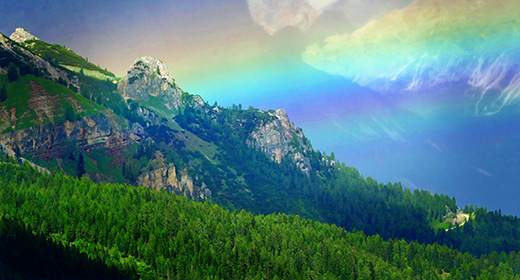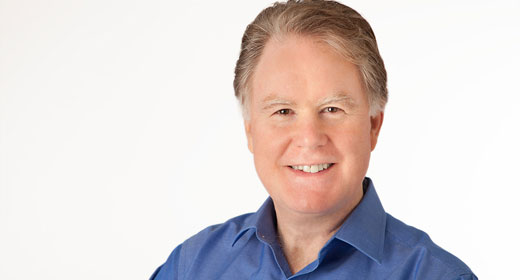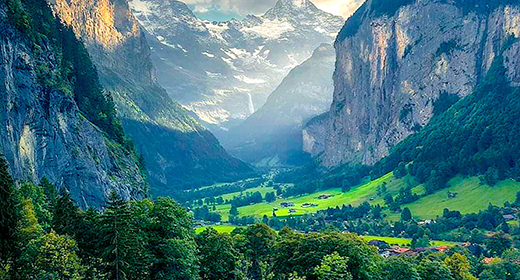Donna Quesada: Hi! First of all, how do I address you? Is it just Lama Palden?
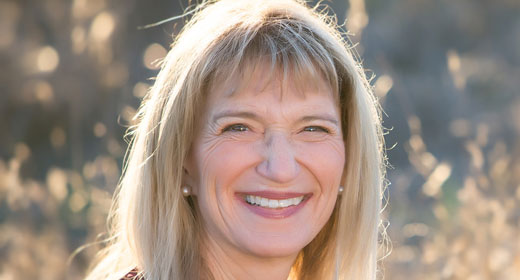
Lama Palden: Yes.
DONNA: Well, it’s so nice to meet you and on behalf of our Awaken listeners, I am just so excited to introduce you to everybody. I’ve been loving your book and our founder, David, has been raving about it. So, thank you for joining us today.
LAMA PALDEN: Thank you. Wonderful to meet you.
DONNA: Thank you so much. And I don’t know if you have watched any of our existing videos, but we kind of like to get out of the gate rolling. So, if you wouldn’t mind, I’d like to dive right in and ask you… what does it mean to awaken?
LAMA PALDEN: Wow! Big question. From a Tibetan Buddhist point of view, it means the purification and complete liberation of all karma. So, all Karmic propensities and habitual patterns are completely liberated. And that process usually happens along the way, both with spiritual practice and with insight… with realization into the true nature of who we really are. And what the truth of the universe really, truly is. So really, the full and complete realization of reality as it is. The nature of the mind. The nature of everything. And simultaneously, the actualization and integration of that into every moment of one’s continuum of consciousness.
DONNA: Wow! That’s a lot. So, let me see if I can break that down a little bit. It’s about seeing reality as it is, but we don’t see reality as it is. Would that be a way to start nailing this down a little bit?
LAMA PALDEN: Yes. And that we don’t see who we truly are.
DONNA: And ourselves, as well. The next question is, why? Why don’t we see reality? And why don’t we see who we truly are?
LAMA PALDEN: Well, from a Buddhist point of view, he talked about ignorance. There is just a fundamental lack of recognition of who we are and what reality is.
DONNA: Just a little disclaimer. I was trained in the Zen Tradition. Some of this is very familiar to me about waking up to your true nature. Even still, as I step out of that, and approach it from a beginner’s mind kind of a place… It… still…it’s not the language we use on a day to day basis. Thinking… how would this look for someone hearing it for the first time? What do you mean, “who we truly are?” Then, who am I?
LAMA PALDEN: Right. So, we want to look, and understand, and realize who we are, behind, or along with, all the changing aspects of self. Normally, the experience of who we are changes in different situations and contexts. We need to discover our unchanging nature. In Buddhism, our unchanging nature… the unchanging nature of the universe… that is simultaneous with everything that is always changing. And leads us to understand who we truly are.
DONNA: It sounds like that never-ending philosophical conundrum. Is there anything that is true forever? Is there anything that is eternal and unchanging? Or, is everything changing? How could I ever have a true nature, at all?
LAMA PALDEN: From a Buddhist point of view. They are called the two truths. That there is the ever changing, and the unchanging, and simultaneously, they are present. And the reality is beyond concept, which cannot really conceptually grasp that fully. Or, to some extent, we can grasp that it’s the case. But to actually directly realize all of that. The nature of that, directly beyond concepts. That is what the path is all about.
DONNA: Yeah, it’s like… it’s just an idea we have. It’s… things change…I can grasp that intellectually, but what is it that I’m experiencing? And so, just to kind of reel this in a little bit… because it’s so easy to get very abstract with this… What are we waking up to?
LAMA PALDEN: What are we waking up to? Basically, that we are way more magnificent than we realize. And we are not our limited sort of messed up selves. Who we truly are, is way, way beyond that… the capacities, the qualities… everything, you know. So, as we walk into that, more and more, through our spiritual practice, we begin to glimpse that. And actually, love is a huge part of this because without kindness and love for our selves and for others, it’s not really possible to experience who we really are.
DONNA: Why is that? Why does love open that door?
LAMA PALDEN: Because love is part of our true nature. It’s part of who we truly are. And if we’re in a place of anger, hatred, resentment… or, if we are constantly berating ourselves and telling ourselves that we should be better, and that we are not any good… I tell people it’s like throwing trash in the middle of our mandala. The middle of our Mandala is our true selves. It’s who we are, and all the aspects of that. So, if we are constantly berating ourselves, we are throwing trash in there, and we can’t see beyond that. We’re just in that experience.
So, the love and kindness connects us with, we could say, the deeper or truer part of who we are. And it’s a salve that opens ourselves. Ego doesn’t open through anger or hate. It opens through kindness and love. It transforms through kindness and love. You have to let that go in order for realization to occur. And that means that the ego has to feel safe and it has to feel kindness. And so, without that, it’s impossible to have the ego let go and open. It’s necessary for realization to occur. Otherwise, the ego is gripping our consciousness and we are just fully in ego consciousness.
DONNA: I love that. The ego has to feel safe. It’s so powerful because it makes you think of the ego as a temperamental toddler. It’s something that needs to be a little coddled.
LAMA PALDEN: The ego is kind of like a toddler. It formulated between three and seven… its operating system… what it knew at the time.
DONNA: What is the ego? For those listening, who aren’t familiar with this kind of language… Of course, in the Buddhist tradition, it comes up a lot. This idea of kind of “getting on top of it.” What is it? And, is the idea to kind of make it go away or just to tame the beast?
LAMA PALDEN: I would say neither. First of all, this idea that the ego is going to go away… that we can kill it or get rid of it, I think is a total aggressive fantasy. So, I don’t think that’s true. As much as people have tried, that never works. So, I think that the ego is part of our operating system as a human being. It’s functional in many ways, but it needs upgrades as we mature and grow.
DONNA: I love that. It’s part of our “operating system.” So, to kind of sum that up… What is the ego? It’s a part of us. What is its proper function?
LAMA PALDEN: You know, that is a good question. I think that the ego develops a lot of capacity. In school, in learning, in interacting with people, and growing up. And those skills and capacities are useful for us. We know how to write. We know how to drive a car. We know how to have a conversation with somebody. And so, all of that can be helpful but it’s really a question of is awareness, in the driving seat. Or, the ego consciousness, which has limited understanding and information. And through meditation and spiritual practice, we can shift the identification inside of ourselves from ego consciousness to awareness of self. And I talk about that in the first chapter of Love in Every Breath. How to do that. And as we do that, in practice, it becomes more and more a reality. So, we can meet the ego and we can teach it, and befriend it, and it can relax, and do what it does, and really… awareness itself is in the driver’s seat.
DONNA: So, we are making that shift from ego being in the driver’s seat to awareness being in the driver’s seat. Let’s talk about the book for a minute. As we said when we said hello, I’ve just been devouring it, and it truly is a beautiful read. It’s called Love on Every Breath. We are all reading it here at Awaken. As you can see, I’ve got it flagged. Well, you can’t see all the marks I have on the inside but you mention the title, Love on Every Breath. If I’m not misquoting or misrepresenting it. To clarify, that is your meditation technique, isn’t it? To breathe love on every breath?
LAMA PALDEN: Yes. This is a thousand-year-old meditation from an awakened woman. And it’s a very powerful practice, so you’re breathing in suffering, or whatever is present. There are eight steps, although they can each be done individually. And the heart of it is breathing in the suffering and letting it be transformed in the heart chakra, and breathing out love. So, there is this sense of meeting every moment of our experience with love, and allowing our experience to be transformed in the heart, into love.
DONNA: You know, even as you say that, I find myself breathing it in and kind of doing it as you say it. It’s a very powerful idea. The way that the action of breathing it in… in a conscious way, can transform the moment, and in turn,our lives. And so, let’s go a little deeper with that. Eight steps. Obviously, in the time we have together,we won’t be able to describe all of those eight steps, but some of them really jumped out at me. I’m just going to come in here willy nilly. I loved the step about refuge. Taking refuge in an enlightened being. And there was a prayer you said that just stuck with me. “Be with me… Be right there with me.” It’s so beautiful. Can you speak of this and how these steps, and this one in particular… because it really touched me? How does it transform us? How does that work?
LAMA PALDEN: Awakened beings, and this is from a Buddhist point of view… All the Buddhas and all the awakened beings that have come through Buddhism… But I think it applies to all spiritual or religious traditions… that the awakened beings are always reaching out to us. Because they are awakened, and liberated, and their manifestation is… They reach out with that love. It’s a spontaneous, awakened activity. And if we open and request them to be with us, then there is a connection made and Tibetans always talk about it like the Buddhists are reaching out, and if we reach out, then a connection is made. And we can receive the transmission of awakened mind, awakened body, awakened speech. And they can guide us. They can be with us. They can protect us. And in our meditation, as we call on them, and take refuge in them… They can provide an awakened sanctuary for us to then do our meditation within.
DONNA: You know, there are a few things that I think are very powerful here. We love to be practical on Awaken.com. Our goal is to set up this refuge, so, if someone is suffering, they can find actual tools that will help them, on the spot. And this is something that I think does that. And it doesn’t matter what religious background you are from. Anyone can step in here when they are in an SOS moment, and call upon whatever deity touches their heart. Even if it’s from their own tradition. And you tell stories of your own healing experiences with Jesus and Mary. And that might confuse people. So, I’d like to talk about that for a minute. No matter where you are, or who you are, you can call on Mary or Chenrezig… I hope I’m saying that right. One of the Tibetan deities. It doesn’t have to be tradition specific. Could you speak about that?
LAMA PALDEN: Right. Chenrezig, That’s the book. That’s the cannon. He’s the Boddhisattva of compassion. Called Quan Yin in China. He has many forms. But, so… Jesus, Lakshmi, Vishnu… the mother… the Great Spirit… God… Allah. However we conceptualize, or feel, or connect with the divine… with the sacred reality, then we can call upon that presence, or those beings, that embody or actualize that… that are that. And, in that way, open to who we truly are. Open to our own divine, sacred, awake self-nature.
DONNA: And in that moment we can feel such comfort. It can be a deeply healing experience which can get us out of the deep waters, in an instant.
LAMA PALDEN: Absolutely. Like you said, “right on the spot.” Yes.
DONNA: Chenrezig… Let’s talk about this Boddhisattva. You share a story in your book. I probably have it written down somewhere, but I think this was the third step in your path… Where you imagine this deity above the crown chakra. And then it sinks down, and becomes a part of us. This is an interesting distinction because in the Hindu tradition, there is kind of this confusion about all of the deities, to the point where we say, “if we are all one, then isn’t praying to a deity kind of a dualistic picture of reality? But, the idea is that it’s a way to connect, and eventually, we realize there was never really any separation, at all. And that idea comes forth when you describe how you imagine Chenrezig coming down into your heart. Am I describing this properly?
LAMA PALDEN: Yes, yes, so, we open because it’s very hard for us to feel our awakened presence, our awakened being. So, we open to awakening outside of ourselves… to a divine presence outside of ourselves. That’s much easier for us. So, we imagine this awake or divine presence above our head. So, the traditional way of the bodhisattva of compassion, Chenrezig… and we pray that like him, our love and compassion may fully open. Our awakened love and compassion, which means “wisdom,” “love,” and “compassion” may fully open. And then he dissolves into light… into us.
And he really is the union of all the Buddha’s awakened love. And then, as he dissolves into us, we call upon this awakened divine presence, and then as they dissolve into us, we awaken to our inseparability with them. And then, this helps us to feel our own divine, awakened nature. This is very, very powerful, and then in doing the love on every breath practice, we are coming from awakened awareness. We move back a little bit from the ego identification, and into this awakened presence. And that is a path that really helps us actualize that, over time.
DONNA: I love that. So, you are moving from philosophical jargon… We’d say dualism to true oneness, where we become that deified presence, and it shines through us. It’s quite beautiful!
LAMA PALDEN: Yes, yes. And hopefully, we recognize that in everyone else, as well.
Read and Watch Part II Here: Awaken Interviews Lama Palden Pt 2 – Female and Male Energy In Full and Complete Awakening
Read and Watch Part III Here: Awaken Interviews Lama Palden Pt 3 – Love On Every Breath
Source: AWAKEN
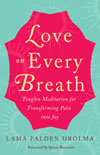 Lama Palden Drolma is the author of Love on Every Breath. A licensed psychotherapist, spiritual teacher, and coach, she has studied Buddhism in the Himalayas with some of the most preeminent Tibetan masters of the twentieth century. Following a traditional three-year retreat under his guidance, Kalu Rinpoche authorized her to become one of the first Western lamas. She subsequently founded the Sukhasiddhi Foundation, a Tibetan Buddhist teaching center in Fairfax, California. Visit her online at http://www.lamapalden.org.
Lama Palden Drolma is the author of Love on Every Breath. A licensed psychotherapist, spiritual teacher, and coach, she has studied Buddhism in the Himalayas with some of the most preeminent Tibetan masters of the twentieth century. Following a traditional three-year retreat under his guidance, Kalu Rinpoche authorized her to become one of the first Western lamas. She subsequently founded the Sukhasiddhi Foundation, a Tibetan Buddhist teaching center in Fairfax, California. Visit her online at http://www.lamapalden.org.

